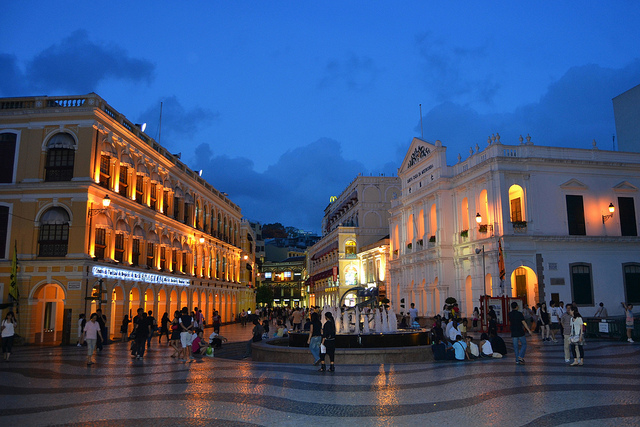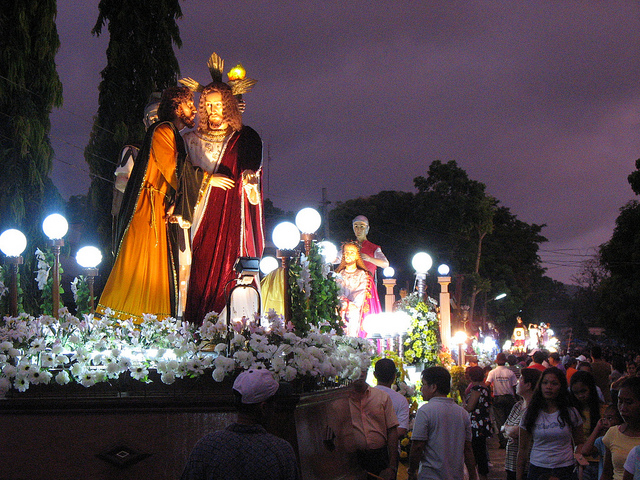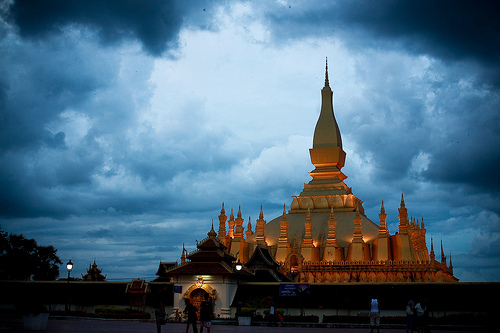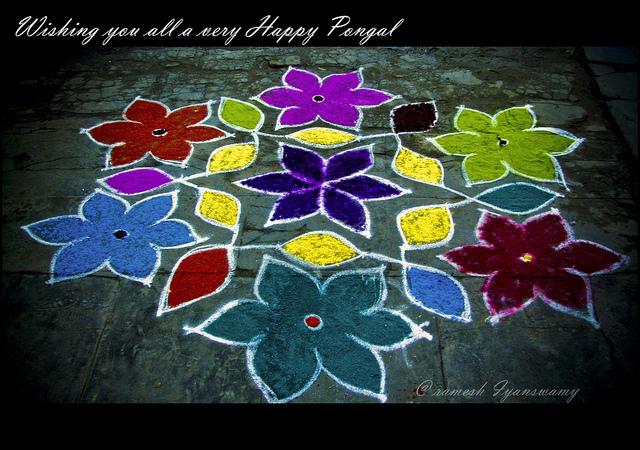Thaipusam or Thai Poosam is a yearly holiday celebrated by the Tamil Hindus to honor Lord Murugan. This holiday is hugely anticipated and widely observed in many parts of the world where Tamil communities, big or small, can be found. Thaipusam is celebrated when the moon is full on the tenth Tamil month called Thai.
In 2014, Thaipusam happens on February 15, but celebrations start and end before the date itself.
The Story of Thaipusam
The story of Thaipusam is deeply entrenched in Hindu mythology. The Devas (deities of natural forces and moral values) were in constant battle with the Asuras (deities of chaos). Their constant loss had the devas approach Lord Shiva for help, asking him for a strong leader to carry them to victory. Different accounts state that Murngan was born to Shiva and Parvati, and successfully led the devas in defeating the asuras. This led to the creation of the festival Thaipusam.
Symbols of Thaipusam
Thaipusam is rich in symbols that are strongly connected to Lord Murungan. His choice of weapon is a vel, a metal lance or spear that was given by his mother Parvati representing her strength and power. Murungan is closely associated with the peacock and the rooster. The latter is depicted in his armor or flag, while the former is his mount in battle.
Offerings and Prayers
On Thaipusam, devotees pray to Murungan for his help and his blessings. Devotees carry on their shoulders a kavadi, elaborately designed altars or shrines that represent the physical burden they lift up to Lord Murungan for help. Often, a kavadi is for preventing or averting trouble from a devotee’s life.
Physical Burdens
Bearers of kavadi take days to preparation and start long before Thaipusam itself. Ceremonies that prepare their physical body as well as rituals to cleanse their soul are undertaken in order to make themselves ready for their sacrifice. Among of these include observing celibacy and eating vegetarian food while being in a constant state of prayer.
Simple kavadi are wooden structures that are lifted on the bearer’s shoulders. More elaborate ones are attached to the bearer’s body with hooks. These hooks represent the vel.
Offerings of pots of milk and doing other acts of devotion are also considered as kavadi.
Thaipusam outside India
Two countries in Southeast Asia are home to the biggest Thaipusam celebrations outside India: Malaysia and Singapore.
Malaysia Thaipusam
The Batu Caves 13 kilometers outside of Kuala Lumpur are the site for the biggest Thaipusam celebration in the country. The caves have several Hindu shrines, and there is a 42 meter high statue of Lord Murungan at the entrance.
A procession the early hours of Thaipusam begins at the Sri Mahamarianman Temple in Kuala Lumpur. Devotees and tourists make the trek from the city to the caves. After the long hike, they will climb 272 steps to reach the hilltop temple dedicated to Lord Murungan. The number of people attending this festival can reach up to a million.
Another site of Thaipusam celebrations in Malaysia is at the Sri Subramaniar Temple in Ipoh, and the Nattukottai Chettiar Temple in Penang.
In some instances, non-Tamil devotees carry kavadi. On rare occasions, people of non-Hindu faith also bear kavadi. Ethnic Chinese Malaysians are also starting to observe Thaipusam.
Singapore Thaipusam
In Singapore, Thaipusam celebrations chiefly happen in Little India along Serangoon Road. Celebrations are similar: Devotees begin their procession at the Sri Srinivasa Perumal Temple and ends at the Sri Thendayuthapani Temple 4.5 kilometers later. Devotees with simple offerings of milk pots and wooden kavadi make up the first part of the procession. Those who carry the more elaborate kavadi with body piercings make the trek at a later time of the day. Families and friends walk along with the kavadi bearers, chanting prayers and songs as a show of support.
Like in Malaysia, Thaipusam is also celebrated by non-Tamil and non-Hindu people. It is also a strong tourist draw.
Act of Faith
Thaipusam shows the intensity of devotion that the Hindu have for their faith. The day is dedicated for prayers and offerings, as well as thanksgiving for the blessings received. It is truly a fascinating look into the rich cultural tradition of the Hindus.



